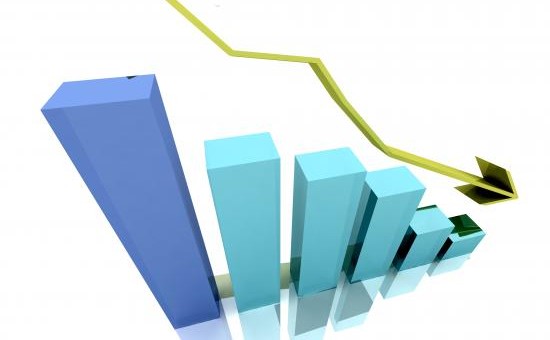The National Bureau of Statistics (NBS) on Tuesday said that inflation dropped by 0.94 per cent in February, the first time in 15 months.
In its latest Consumer Price Index (CPI) for February released in Abuja, the bureau stated that the index, which measured inflation increased by 17.78 per cent year-on-year.
It, however, stated that the increase was at a slower pace in February when compared to January consumer activities, which was 18.72 per cent.
“This represents the first time in 15 months that the headline CPI has declined on year-on-year basis.
“It represents the effects of slower rises in already high food and non-food prices and favourable base effects over 2016 prices.
“Price increases were recorded in all Classification of Individual Consumption by Purpose (COICOP) divisions that yield the Headline Index.
“However, the major divisions responsible for accelerating the pace of the increase in the headline index were housing, water, electricity, gas and other fuel, education, food and alcoholic beverages, clothing and foot wear and transportation services.’’
On a month-on-month basis, the report stated that the Headline index increased by 1.49 per cent in February 2017, 0.48 per cent points higher from the rate of 1.01 per cent recorded in January.
It stated that the Food Index increased by 18.53 per cent (year-on-year) in February, up by 0.71 per cent points from rate recorded in January (17.82) per cent.
The report stated that the index was driven by increases in the prices of bread, cereals, meat, fish, potatoes, yams and other tubers and wine.
It added that the slowest increase in food prices year-on-year was recorded by soft drinks, coffee, tea and cocoa.
During the month, the report stated the highest year-on-year increases were seen in electricity, liquid and solid fuels, fuels and lubricants for personal transport equipment, clothing materials.
It stated that other articles of clothing and clothing accessories, books and stationeries also recorded increase.
Meanwhile, it stated that the Urban index rose by 18.57 per cent year-on-year in February from 20.31 per cent recorded in January.
It further stated that the Rural Index increased by 16.98 per cent in February from 17.34 per cent in January.
On month-on-month basis, it stated that the urban index rose by 1.52 per cent in February from 1.03 per cent recorded in January, while the rural index rose by 1.47 per cent in February from 1.00 per cent in January.
“The Composite Food Index rose by 18.53 per cent in February 2017.
“The rise in the index was driven by increases in the prices of bread, cereals, meat, fish, potatoes, yams and other tubers, vegetables, wine, milk, cheese and eggs, Sugar, jam, honey, chocolate and confectionery and fruit.’’
On a month-on-month basis, it stated that the Food sub-index increased by 1.99 per cent in February, up by 0.7 per cent points from 1.29 per cent recorded in January.
“The average was 16.13 per cent, 0.59 per cent points from the average annual rate of change recorded in January (15.54 per cent).’’
The News Agency of Nigeria (NAN) reports that CPI measures the average changeover time in prices of goods and services consumed by people for day to-day living.
The construction of the CPI combines economic theory, sampling and other statistical techniques using data from other surveys to produce a weighted measure of average price changes in the Nigerian economy.
The weighting occurs to capture the importance of the selected commodities in the entire index. (NAN)
CIA/JEY/EEE
==========

